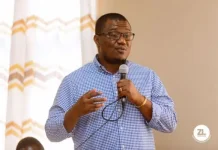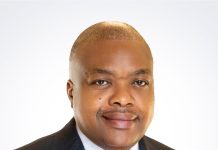DAKAR, Senegal, May 2022/ — Following a three-day International Symposium bringing together medical experts from 29 African countries, Ministers of Health from around Africa converged in a historic moment to draft a clear path towards wider and safer access to surgical care in Africa by 2030.
On the third day, Senegal’s Minister of Health Abdoulaye Diouf Sarr officially declared the African Ministers of Health meeting opened, proclaiming that the Symposium can usher in a new era for safe surgical, obstetric and anesthetic care in Africa, while thanking Mercy Ships for catalyzing this initiative to strengthen surgical care systems.
The Symposium was held under the patronage of His Excellency Mr. Macky Sall, President of the Republic of Senegal, who is also the current president of the African Union. Meetings were chaired by Abdoulaye Diouf Sarr.
The event was organised in collaboration with Mercy Ships, the WHO Regional Office for Africa, West African College of Surgeons (WACS), Smile Train and other partners.
”We are grateful to Mr. Abdoulaye Diouf Sarr for hosting the African Ministers of Health meetings today. Mercy Ships is thankful to have such a partner in our efforts to strengthen surgical care systems in Africa. The engagement in the Symposium shows us that it is time to take our collaboration to the next level in supporting the design and strengthening of surgical care systems on the continent,” affirmed Dr. Pierre M’Pele, Africa Bureau Director, Mercy Ships.
The Symposium offered a unique opportunity to consolidate a political commitment towards access to health care for future generations. Prior to the Symposium, a baseline assessment had been started with each nation and evaluated by a scientific committee. For the first time in Africa, this study collected data on factors related to the provision, access and operation of surgical, obstetric, and anesthetic health care systems in 28 of the 47 nations of WHO’s sub-Saharan African region, providing a unique insight into the continent’s healthcare systems through the perspective of district hospitals, especially in the area of surgery.
“We are learning what has worked and what hasn’t worked for when we start implementing our own [surgical plan]. Having Ministers of Health from many regions in this Symposium is like having a brotherhood and sisterhood of health care networks,” proclaimed South Sudan’s Health Minister, Yolanda Awel Deng Juach.
The ground-breaking preliminary report, delivered by members of the scientific committee, led to the drafting of a roadmap to scale up investment in the strengthening of surgical, obstetric, anesthetic and nursing care in Africa. The Ministers of Health discussed and endorsed a draft Dakar Declaration to be adopted by African Heads of State.
“I am very pleased that we have been able to support these data collection efforts, and I must acknowledge the contribution of our country teams towards this innovative baseline assessment of surgical, obstetric and anesthetic care and services at public district hospitals. The study is a first in the African region and WHO will leverage the results to complete the ongoing situational analysis of clinical and hospital services, as well as finalize the regional strategy for strengthening hospital and clinical services in Africa, which is still in development,” stated WHO Regional Director for Africa, Dr. Matshidiso Moeti.
Starting at the end of May during an Africa Celebration, the Global Mercy®™, newest purpose-built hospital ship operated by Mercy Ships, will arrive in the port of Dakar to be commissioned for service to Africa.
As part of the events, a Presidential Conversation will take place under the auspices of Senegal’s President Macky Sall, looking to approve the Dakar Declaration by the Heads of States from the African countries that attended the International Symposium.
Distributed by APO Group on behalf of Mercy Ships.
Additional notes:
Every year, 16.9 million people worldwide die due to lack of access to surgical care and 93% of sub-Saharan Africa still lacks access. Africa alone bears 25% of the global burden of disease and one in three of the world’s clinical conditions requiring emergency care and essential surgical, obstetric and anesthetic services (EESOACS). The continent is home to 17% of the world’s population yet has only 2% of the world’s doctors and only 0.7 surgical specialists per 100,000 people.
In Africa, some progress has been made in health, including a 37% decline in mortality rates between 2000 and 2015. However, Africa’s overall performance still lags in other health indicators. These efforts contribute towards continent making progress towards Sustainable Development Goal 3 “health for all and promotion of well-being for all at all ages” (https://bit.ly/37Gj4jQ).
About Mercy Ships:
Mercy Ships uses hospital ships to deliver free, world-class healthcare services, capacity building, and sustainable development to those with little access in the developing world. Founded in 1978 by Don and Deyon Stephens, Mercy Ships has worked in more than 55 developing countries, providing services valued at more than $1.7 billion and directly benefitting more than 2.8 million people.
Our ships are crewed by volunteers from over 60 nations, with an average of over 1200 volunteers each year. Professionals including surgeons, dentists, nurses, healthcare trainers, teachers, cooks, seamen, engineers, and agriculturalists donate their time and skills. With 16 national offices and an Africa Bureau, Mercy Ships seeks to transform individuals and serve nations one at a time. For more information please visit: www.MercyShips.africa






































